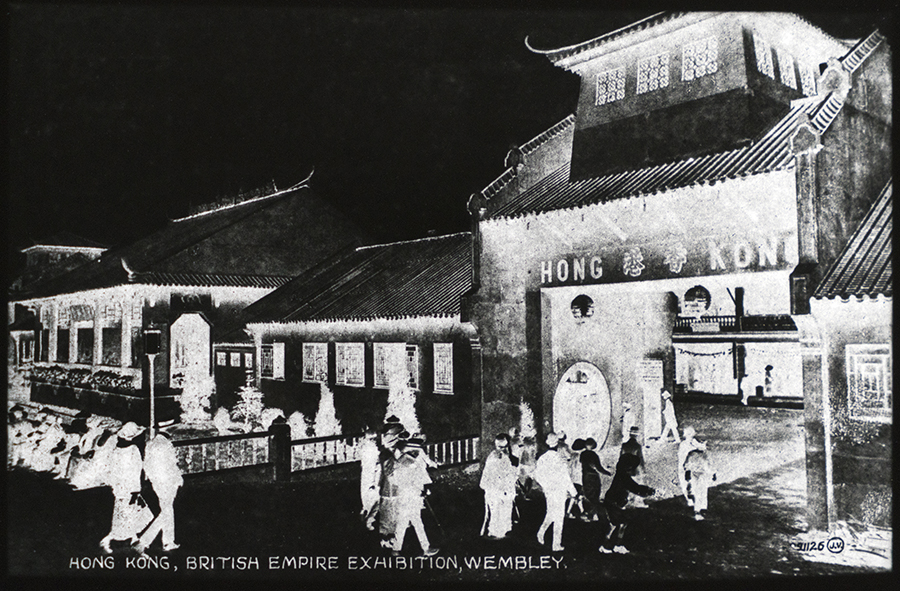
A series of photograms of postcards connected with the British empire. Many are from the 1924 British Empire Exhibition held at Wembley Park, which was an opportunity for visitors to learn about the colonies, and to ‘enable all who owe allegiance to the British flag to meet on common ground.’ The pavilions were styled to reflect the traditional architecture of each colonial region. Others record the Empire Day celebrations that took place between 1902 and 1958.
The economic anthropologist Jason Hickel suggests that ‘if British people understood colonial history half as well as they understand the details of Henry VIII’s wives, Britain would be a different country.’ The point he makes is that colonial history isn’t formally taught and that there are consequences to this. In place of schools teaching about the nature of colonialism and the trajectory of the British empire, there has instead been a process of cultural absorption, where ideas about empire are inculcated and a general, largely positive, picture emerges. Britain comes to be seen as a country that combined its plucky zeal for trade and conquest with its dutiful role as a civilizing influence. Yet for those who were on the receiving end, the picture must, at best, be somewhat more equivocal. Any positives are overshadowed by a rule of harsh division and ruthless self-interest.
Making photograms of postcards connected with empire achieves a simple reversal. Positive becomes negative, white becomes black. Any patina of nostalgia is swept away and the pictured event is seen anew. The image becomes alien and difficult to read. The grainy, indexical trace of what was captured is still present, and at times combines with elements on the reverse side, but the baggage of dewy-eyed affection is gone and we’re forced to mentally disentangle what we see, reversing the shadows and highlights.
